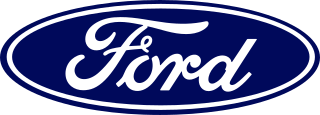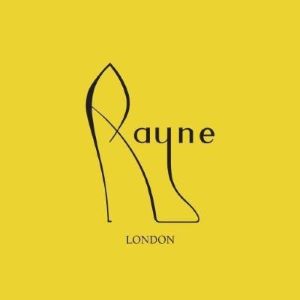
Siemens Brothers and Company Limited was an electrical engineering design and manufacturing business in London, England. It was first established as a branch in 1858 by a brother of the founder of the German electrical engineering firm Siemens & Halske. The principal works were at Woolwich where cables and light-current electrical apparatus were produced from 1863 until 1968. The site between the Thames Barrier and Woolwich Dockyard has retained several buildings of historic interest. New works were built at Stafford in 1903 and Dalston in 1908.
In the Republic of Ireland, the retail sector provides one of the largest sources of employment in the economy, representing over 12% of the workforce. As of 2017, approximately 40,000 wholesale and retail businesses employed almost 280,000 people in Ireland, with the Department of Enterprise, Trade and Employment reporting that 90% of these businesses were Irish-owned.
Thomson Travel Group plc was a business formed by the Thomson Corporation of Canada, when it was floated on the London Stock Exchange in 1998. It was acquired by Preussag AG, an industrial and transport conglomerate, in 2000. The group continued until 2002 when it was renamed TUI Northern Europe Limited, a full subsidiary of TUI AG.

Freeman, Hardy and Willis is a major chain of footwear retailers in the United Kingdom between 1875 and 1996. Since 2020, it operates exclusively online.
Shoe Carnival Inc. is an American retailer of family footwear. The company operates 429 stores throughout the midwest, south, and southeast regions, and Puerto Rico. It was founded by David Russell in 1978 and is headquartered in Evansville, Indiana.

Ford Motor Company Limited, trading as Ford of Britain, is a British wholly owned subsidiary of Ford Technologies Limited, itself a subsidiary of Ford International Capital LLC, which is a subsidiary of Ford Motor Company. Its business started in 1909 and has its registered office in Laindon, Essex. It adopted the name of Ford of Britain in 1960.

Shoppers Food & Pharmacy, also known as Shoppers Food Warehouse, is a chain of 22 supermarkets located in the Baltimore and Washington, D.C., metropolitan areas. Shoppers has fresh produce, Swift Angus beef, Smithfield natural pork, all-natural chicken, Dietz & Watson delis, fresh seafood, steamed shrimp, as well as hot food bars.

Crabtree & Evelyn was a retailer of body, fragrance and home care products. Beginning with one store in Cambridge, Massachusetts, in 1971, the brand grew to an international presence, with hundreds of locations globally.
Lavells Newsagents Ltd was founded in 1922 as Lavell & Co Ltd, a private company operating a small group of High Street outlets in central London specialising in confectionery.
Johnston & Murphy is an American footwear and clothing company based in Nashville, Tennessee. Johnston & Murphy designs, sources, markets and distributes footwear, apparel, leather goods and luggage. A subsidiary of Genesco Inc., the Johnston & Murphy Group operates retail and wholesale businesses.

Dalgety plc—as Dalgety and Company—was for more than a century a major pastoral and agricultural company or stock and station agency in Australia and New Zealand. Controlled from London it was listed on the London Stock Exchange and Australasian exchanges.
Sears plc was a large British-based conglomerate. The company was listed on the London Stock Exchange and was once a constituent of the FTSE 100 Index. It was acquired by Charles Clore in the 1950s who expanded the company to be one of the largest retailers in Britain. It was acquired by Philip Green in 1999 who oversaw the break up of the group.

The SU carburettor was a constant-depression carburettor made by a British manufacturer of that name or its licensees in various designs spanning most of the twentieth century.
George Herbert Skinner (1872–1931) was a British boot and shoe manufacturer, enthusiastic pioneer motorist and inventor of a well-known carburettor which remained in production almost the entire twentieth century until superseded by fuel injection systems.
Padini Holdings Berhad is an investment holding company based in Malaysia that sells shoes, garments, ancillary products, children’s garments, maternity wear, and accessories through its various subsidiaries. Its most notable brands are Padini and VINCCI. The company primarily exports its manufactured goods to the Middle East and Southeast Asia.

Joseph Edward Nathan was a London-born New Zealand merchant, dairy manufacturer and exporter. A successful businessman, he returned to London in 1887 after 30 years in New Zealand.

Ransome & Marles Bearing Company Limited was the owner of a business making ball and roller bearings founded during the First World War to make bearings for aircraft and other engines. Before the war most bearings had been imported and most of those were from Germany.

Rayne was a British manufacturer known for high-end and couture shoes. Founded in 1899 as a theatrical costumier, it diversified into fashion shoes in the 1920s.
Weyco Group is an American footwear company that designs, markets and distributes brand names including Florsheim, Nunn Bush, Stacy Adams, BOGS, Rafters and Umi. The company, which focuses on North American wholesale and retail distribution, has been assembled by a series of acquisitions.
Edison Brothers Stores, Inc., was a retail conglomerate based in St. Louis, Missouri. It operated numerous retail chains mainly located in shopping malls, mostly in the fields of shoes, clothing and entertainment, with Bakers Shoes as its flagship chain. The company was liquidated in 1999, though some of the chains it operated continued under different owners.









